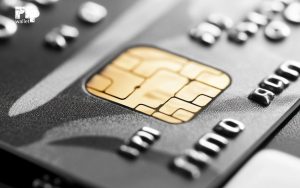The blockchain is a simple yet complex development that allows for easy interaction between different ecosystems. With the availability of millions of unique ecosystems, protocols, DApps, and their corresponding tokens, it can be quite difficult to establish an intertwined interaction between each other. To allow for ease, the concept of wrapping tokens was initiated, and crypto with smart contracts has a similar wrapped version.
The wrapped token and its bridges
A wrapped token is a token that represents a cryptocurrency from another blockchain or a similar token standard and is worth the same as the original cryptocurrency. Unlike the original cryptocurrency, the wrapped token can be used on certain non-native blockchains aside from its original and can be redeemed for the original cryptocurrency.
Before tokens are wrapped, a blockchain bridge is needed to help convert the native tokens to wrapped tokens. When a token is to be wrapped, the blockchain bridge contract locks down the token and then creates an equivalent number of wrapped tokens. The amount of SOL needed is locked in a smart contract, and the equivalent token on the destination blockchain network is issued or minted.
Wrapped asset bridges enable crypto interoperability, and sidechain bridges connect the parent blockchain to its child sidechain, enabling interoperability between the two. They are needed because the parent and sidechain may have different consensus mechanisms. One example is xDai Bridge, which connects the Ethereum mainnet to Gnosis Chain (formerly xDai blockchain), an Ethereum-based stable payment sidechain. xDai is secured by a set of validators different from those who maintain the Ethereum network. The xDai Bridge allows the easy transfer of value between the two chains.
A wrapped Solana is a token that represents Solana on the Ethereum Blockchain and can also be bridged back over to the normal Solana token. In simpler terms, wSOL is SOL. There are numerous ways to either get wSOL or wrap your existing SOL token, as Solana has developed a token program that can be used to wrap native SOL. By doing so, the native SOL can be treated like any other token program or token type and can be useful when being called from other programs that interact with the token program’s interface. Also, accounts containing wrapped SOL have been associated with a specific mint called the “Native Mint.”
To acquire wrapped bitcoin, you can either go to approved crypto exchange platforms that offer them for sale or allow for an easy wrapping process to ensure there is always exactly one Solana backing every single wSOL in circulation. This is fundamentally similar to how pegged-value stablecoins work.
Who are the founders of Wrapped Solana (wSOL)?
Since Anatoly Yakovenko is the most important person behind Solana, it is most likely he is also behind the brain of wSOL, as most productive cryptocurrencies have their own wrapped version. His professional career started at Qualcomm, where he became the senior staff engineer manager in 2015. Afterward, he was employed as a software engineer at Dropbox.
What is wrapped Solana (wSOL) used for?
NFT transaction
With wSOL, holders can participate in activities like minting, selling, and trading non-fungible tokens (NFTs).
Build DApps
Wrapped tokens can be utilized by blockchain developers in the development of decentralized finance (DeFi) platforms, such as decentralized crypto exchanges.
Build games
Likewise, developers can use the wrapped Solana token in the building of blockchain games, including Web3 games, and partnerships with big-name companies.
Validation
Since the SOL token, and the wrapped token performs the same functions, the SOL token. The token can be passed to nodes within the Solana cluster in exchange for running on-chain programs or validating its output.
Payments
Another use for the wrapped SOL is to perform micropayments known as lamports.
Staking
Another additional use case of wSOL is that you can stake the token to earn additional rewards, as staking is a good way for users to earn a profit if they are just looking to hold their tokens.
How is wrapped Solana (wSOL) unique?
Wrapped Solana helps create greater interoperability between non-compatible cryptocurrencies and blockchains, which creates an avenue like token lending and borrowing on DeFi platforms. It provides greater liquidity to decentralized services and boosts the utility of crypto assets.
Moreso, Wrapped Solana is useful because it allows the use of their asset or a similar synthetic asset that offers the same exposure to Solana’s value in decentralized finance (DeFi) protocols on Ethereum and other ecosystems. This benefit helps them unleash the potential of changing Solana into a yield-bearing asset that can earn returns from liquidity pools on Uniswap, Yearn Finance, or other similar pools.
How many Wrapped Solana (wSOL ) coins are in circulation?
There are exactly 100,000,000 wSOL in circulation.
How is Wrapped Solana Network secured?
Wrapped Solana uses the same contract as Solana to secure itself and its users. wSOL uses Proof of Stake (PoS) and Proof-of-history (PoH) consensus as its main components, which is responsible for the bulk of transaction processing. The PoH system records successful operations and the time that has passed between them, thus ensuring the trustless nature of the blockchain.
The proof-of-stake (PoS) consensus is used as a monitoring tool for the PoH processes, and it validates each sequence of blocks produced by it. The combination of two consensus mechanisms makes Solana a unique phenomenon in the blockchain industry.
How do I buy wrapped Solana (wSOL)?
The wSOL token can be used for a wide range of uses, like staking and gaming.
wSOL tokens can be easily purchased by the following steps.
* Open an account with the crypto trading platform.
* Transfer the specific amount of your fiat currency to your account.
* Wait for your deposit to be confirmed and buy wSOL through your trading account.
Which Cryptocurrency Wallet Supports Wrapped Solana (wSOL)?
The PTPWallet platform supports many cryptocurrencies simultaneously, such as wrapped Solana (wSOL). Because of its vast use case, it has grown to become one of the most used platforms, as it serves as an exchange and an engine to discover other cryptocurrencies. Users can easily use PTPWallet as their wSOL wallet because it offers a simple interactive interface, making it easy for people to navigate its system



